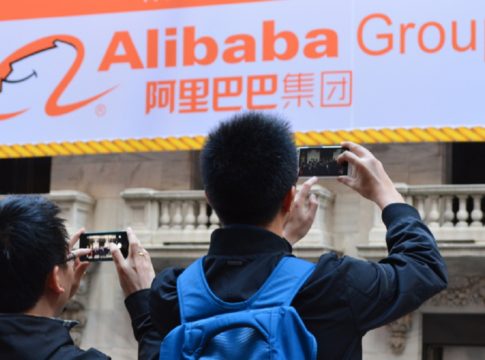As per the US Food and Drug Administration’s Medical Devices Regulations report of September 2016 “The U.S. medical technology industry generated $336 billion in revenue in 2013”, employing fewer than a million employees. In such a niche industry of lucrative profits, and sceptical pricing structures competition may grow in the near future.
Amazon dominates e-commerce and has 5% of total U.S. retail sales. Some expect that the company will own half of the online market within the next five years, a period during which, Credit Suisse predicts, a quarter of all malls will close. By the end of this year, more than 8,600 stores will have closed, the worst year on record.
Earlier this year, rumours of Amazon’s entry into the medicines market broke after it obtained wholesale pharmacy licences in at least 12 US states. Coupled with its purchase of grocery chain Whole Foods, the suggestion was that the firm could distribute prescription drugs via these newly purchased outlets. Amazon chief financial officer Brian Olsavsky was quoted saying he could not “confirm or deny any of the rumours related to pharmacy or anything else.”
Despite not suggesting any concrete plans, Amazon was already reported to be recruiting experienced executives to lead a new healthcare division. Olsavsky’s comments spooked shareholders in both Walgreens and CVS, two of the USA’s biggest pharmacy chains, leading to an almost 6% share price drop for both firms. The prospect of the online retail giant muscling into the sector has already worried pharmaceutical executives – its record in driving down prices and increasing price transparency can eventually hit pharmaceutical profits.. Goldman Sachs published a report in August to investigate the impact of an Amazon entry, predicting that it would throw its weight behind a price transparency push for consumers and reduce their out-of-pocket costs.
Since then, a few reports have suggested that the company is exploring the pharmacy business as well as speaking to healthcare regulators. More light may have just been shed on the issue recently. As reported by CNBC, the online shopping giant is delaying its anticipated entry into the pharmaceutical market over concerns related to the market’s stringent regulations. Instead, Amazon is looking to sell medical devices and supplies through its Indiana fulfilment centre, according to a Freedom of Information Act request by US investment firm Jefferies. Of course, tackling the simpler aspects of the healthcare market first, like shipping medical equipment and devices, does not mean it will now eventually take on the pharmacy market. One idea is that Amazon could use its licenses to act as a pharmacy benefits manager (PBM), negotiating price cuts with pharmaceutical companies and pharmacies to sell to US healthcare providers. The move would prove lucrative for Amazon as the US market’s estimated annual profit is currently around $420 billion, while recent poor press surrounding PBMs and their role in drug price inflation could also open the door to cheaper drug pricing from Amazon.
A 2011 analysis found that “32 of the 46 medical technology companies with more than $1 billion in annual revenue are based in the United States.” Although the largest companies dominate the market for devices in terms of sales, some believe it is often the small device companies that make a significant contribution to early innovation. Small companies may partner with larger companies to bring products to market if they lack access to the capital and resources to conduct clinical trials and navigate regulatory hurdles. Such a market of giant industry players with obscure pricing strategies, may find an option like Alibaba a more appealing option to work with in the near future to avert Amazon’s involvement.
Alibaba doesn’t sell products themselves. Instead, they simply offer a web platform that facilitates the exchange of goods. They’re the world’s largest eCommerce company, but they’re actually much more like a software company than a retailer. Amazon, by contrast, is in the business of selling directly to consumers and has to deal with all of the logistically complex and expensive physical aspects that go along with it. Namely, building out a vast warehouse network. It’s this difference that explains why Alibaba has been able to grow so quickly and remain highly profitable, while Amazon has had to sacrifice profits for two decades to get where they are today.
Alibaba has a stranglehold on the Chinese market and Amazon is the undisputed U.S. leader. They both have such a massive head start and an intimate understanding of their market that it would be extremely difficult for one to knock the other from their perch. Nonetheless, Alibaba’s Jack Ma has stated that they have plans to invest seriously in the U.S. and Amazon isn’t known for shying away from a fight, even if it proves to be costly. There have been talks of Alibaba purchasing a company like eBay or Etsy, which would make sense given their platform approach in China and focus on smaller businesses. This represents a potentially even bigger opportunity for Alibaba to help not only develop a collabouration with the largest medical technology companies, but further more allow smaller companies a reach into its massive and still largely untapped pool of Chinese consumers. Currently, there are a number of issues that make that difficult (logistics, language, culture issues) but Alibaba can create a platform that addresses these problems. Given Alibaba’s more profitable and scalable model and their momentum, today they may also have the advantage in a head-to-head battle for the US market and the chance to knockout Amazon on their home ground.


